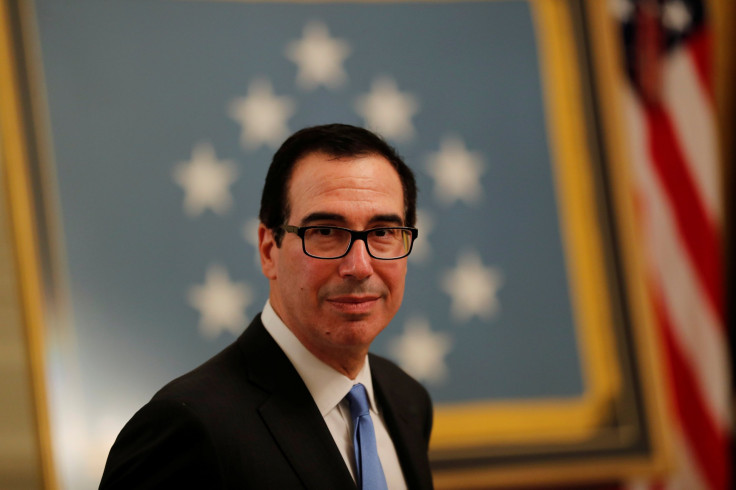The US Is Running Out Of Money? Battle Over Debt Limit May Be Looming

Treasury Secretary Steve Mnuchin has warned that the United States is running out of money and that Congress will need to vote to raise the debt limit by early September in order to prevent a default on its debt obligations.
A vote may be needed in the coming days, as House members leave on July 26, while the Senate will begin its recess on Aug. 2. Mnuchin has urged congressional leaders to raise the debt limit before the vacation.
If the U.S. fails to raise the debt ceiling it would not only cause turmoil for global financial markets but also downgrade the country's credit rating.
Federal Reserve Chairman Jerome Powell believes that the global economy would suffer from "unthinkable" damage if Congress doesn't act and raise the debt limit.
Speaker of the House Nancy Pelosi, D.-Calif., recently said that "We certainly do not want any default on the part of the full faith and credit of the United States of America." She added that "there are those on the Republican side who have embraced that again and again, so we'll see."
In the past, some Republicans, such as Sen. Ted Cruz, R.-Tex., have tried to prevent the debt ceiling from being raised due to concerns about government spending.
Senate Majority Leader Mitch McConnell. R-Ky., has said that he doesn't think "there will be any chance we'll allow the country to default." McConnell didn't make it clear if he would organize his party to vote on a debt ceiling increase before the summer recess, however.
The U.S. has $22 trillion in debt. A recent report by the Congressional Budget Office said that "large budget deficits over the next 30 years are projected to drive the federal debt held by the public to unprecedented levels, from 78% of gross domestic product (GDP) in 2019 to 149% by 2049."
© Copyright IBTimes 2024. All rights reserved.





















